Regional testing push in Ballarat, Geelong and Bendigo, lowest daily increase in three weeks brings virus hope
The state government has taken over three nursing homes “of particular concern” in Melbourne’s west, while a testing push has been launched in regional Victoria.
Coronavirus
Don't miss out on the headlines from Coronavirus. Followed categories will be added to My News.
This coronavirus article is unlocked and free to read in the interest of community health and safety. Get full digital access to trusted news from the Herald Sun and Leader for just $1 for the first 28 days.
Victoria has recorded 278 new coronavirus cases and eight deaths, while the Premier has announced a testing push in regional Victoria.
Thursday’s daily case numbers are the lowest since 275 on July 20, prompting hope stage four restrictions are working however the state’s deputy chief health officer urged a cautious approach.
“A swallow doesn’t make a summer,” he said.
“We look at trends over time.”
However, he flagged the introduction of masks and the curfew 10 days ago was having impacts and “numbers are coming down”.
107 of the new cases are of an unknown origin, and Victoria’s death toll now stands at 275.
A woman in her 50s, two men in their 70s, two women and two men in their 80s, and a man in his 90s are among the deaths.
Four of the deaths are linked to aged care outbreaks.
There are 2018 active cases across 125 aged care facilities, and 1140 active cases in healthcare workers.
664 Victorians are in hospital with the virus, of which 37 are in intensive care and 35 are on ventilators.
REGIONAL TESTING PUSH
The Premier announced that testing centres will be rolled out in regional Victoria as cases rise in rural areas.
“We have seen some significant growth of cases in Geelong, Ballarat and Bendigo and that is of concern to us,” Mr Andrews said.
There are currently 482 active cases outside of Metropolitan Melbourne.
176 cases have been recorded in Geelong in the past 14 days, deputy chief health officer Allen Cheng.”
“A lot of those have been attributed to outbreaks, which are coming under control, but there is certainly some outbreaks and some cases where we don’t know where they’ve come from and it’s very important that people in the community there get tested if they have any symptoms,” Prof Cheng said.
“My understanding is that Geelong is not related to Colac, but obviously there are movements of people between these areas and it’s something we keep an eye on closely.”
23 cases have been recorded in the past two weeks in Ballarat, however Prof Cheng said the numbers include three unrelated outbreaks.
Bendigo has recorded 51 cases in the past two weeks, and Prof Cheng said authorities were keeping a close eye on the area.
“A high proportion of these aren’t attributed to known outbreaks, which are coming under control,” he said.
“So my sense is that these will probably play out a bit more like Colac.”
Mr Andrews also warned there were “mystery cases”, which had led to the new testing centres, which will open from Friday.
The Premier unveiled the changes today saying “this is a wildly infectious disease and regional Victoria is not immune.”
New testing centres will be launched in Geelong, Newcombe, Bellarine, Ballarat and Bendigo, while existing testing sites at Ballarat Respiratory Clinic, Kardinia Health, Geelong and Spring Gully Primary Health, Bendigo will be expanding their capacity.
More than 340,000 test have already been carried out in rural areas.
Federal Health Minister Greg Hunt said he had “cautious optimism” that Victoria was turning the tide after receiving updated advice from Acting Chief Medical Officer Professor Paul Kelly
“We now believe cautiously that we have early signs of the flattening of the curve in Victoria,” Mr Hunt said.
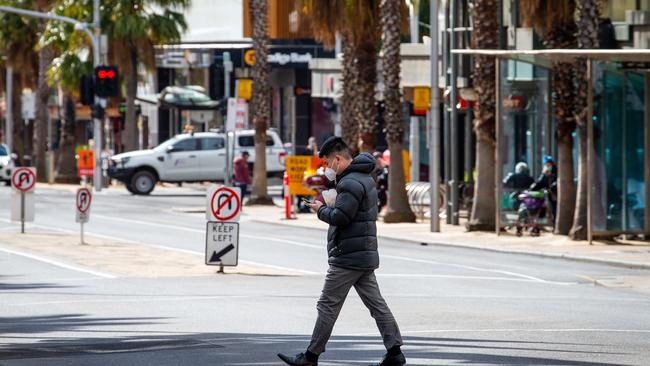
STATE TAKEOVER OF THREE HIGH-RISK AGED CARE FACILITIES
As the aged care outbreaks continue to grow the state has taken over three additional aged care centres.
Glenlyn Aged Care in Glenroy is now being managed by Melbourne Health, Florence Aged Care in Altona North has been taken over by Western Health, and Kaylna Care is being managed by Bacchus Marsh Hospital, which is being led by Djerriwarrh Health Services with Ramsay Health Care also on-site.
“There are three aged care facilities — in broad terms — in the west of Melbourne that are of particular concern ... We have essentially assumed the responsibilities of these centres,” Mr Andrews said.
Staff will be replaced by nurses and doctors as care can no longer be carried out under the current staffing conditions.
Mr Andrews spoke to the matter of transferring patients to hospital saying it can be “traumatic and tragic” so moving people was made on medical decisions “and not other factors come into it,” Mr Andrews said.
“Anyone that needs to go to hospital will go to hospital.”
Mr Andrews said some providers had wanted all residents to be moved to hospital without just cause, which Mr Andrews said was not justifiable.
“We don’t have a system that provides the easiest outcome for the private operator,” he said.
He listed at least one provider that had early on in the pandemic ordered 100 ambulances to come get patients, which Mr Andrews said was not acceptable.
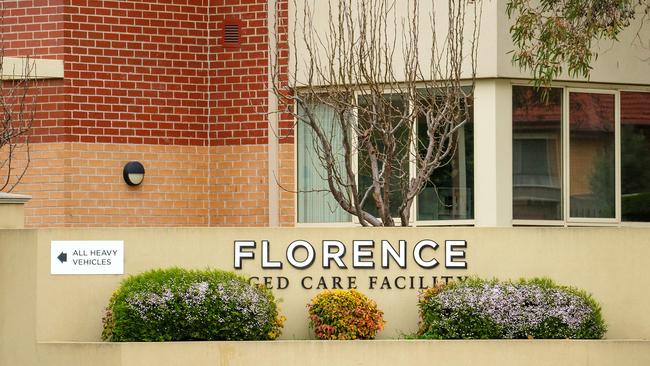
ISOLATION PAYMENTS TO INCREASE
It comes as the state government have also increased the state-funded isolation payments to $450, with some people saying they are waiting up to five days to receive results.
More than 17,000 people have received the current $300 isolation payment - given to people waiting for test results who do not have access to sick leave.
3,900 Victorians have accessed the $1500 disaster payment after testing positive and needing to quarantine.
Mr Andrews denied the increase in the payment reflected that people were waiting longer for test results.
He said on average people were waiting 1.6 days for results, despite some people reporting they were waiting for results five days after being tested.
Mr Andrews declined to comment on reports that 100 ADF staff were put on standby for Victoria saying he doesn’t respond to facts put forward by unnamed sources.
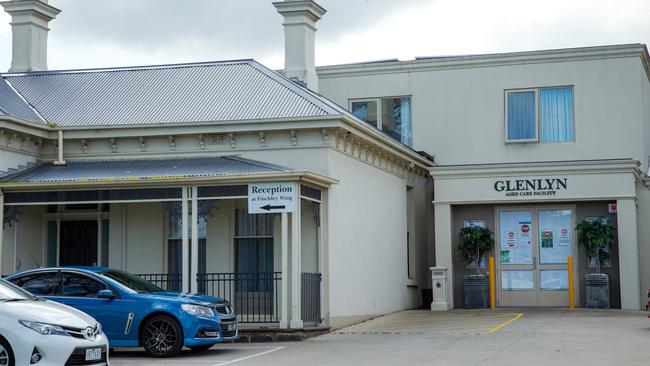
ONE MILLION PEOPLE OUT OF WORK
More than one million people are now out of work, with new jobs figures revealing Victoria was starting to recover before Melbourne’s stage four shutdown.
The unemployment rate reached 7.5 per cent in July, according to the Australian Bureau of Statistics, but it had fallen to 6.8 per cent in Victoria as an extra 22,900 people were back in work.
The effective unemployment rate — including those stood down and not working any hours — was 9.9 per cent, down from its peak of 14.9 per cent in April, but the federal government expects that to climb above 13 per cent because of Melbourne’s current restrictions.
ABS head of labour statistics Bjorn Jarvis said: “For the first time there were more than one million people out of work, available to work and actively looking for work.”
Federal Employment Minister Michaelia Cash said the government would remain agile to support the workforce, particularly in Victoria, with a $15.6bn boost delivered in changes to the JobKeeper wage subsidy program.
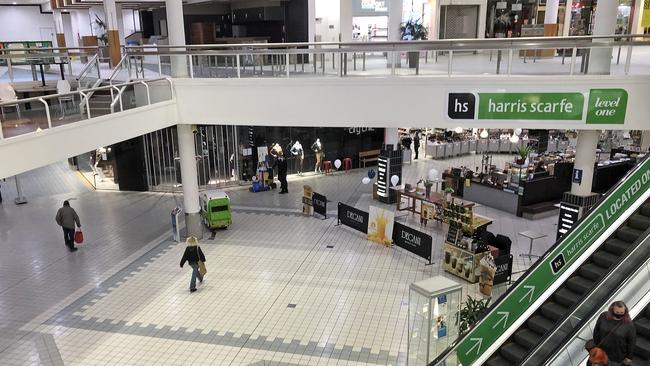
But Shadow Treasurer Jim Chalmers said the government needed an immediate jobs plan with “too many Australians out of work”.
It comes as Labor sets up a fight over the government’s push to extend emergency industrial relations changes, which allow businesses to stand down staff and cut their pay and hours.
The powers are available to businesses eligible for JobKeeper, and the government wants to extend them in line with the extension of the subsidy program.
But opposition industrial relations spokesman Tony Burke said it would be “a hammer blow for job security” if the changes remained in place for businesses which had recovered.
- Tom Minear
STATE PARLIAMENT TO SIT IN AUGUST
The Victorian Parliament has been given the greenlight to sit in August under new provisions announced by the Victorian Chief Health Officer.
The state upper house will sit on August 18, however no regional MPs will be present under the current advice issued by CHO Brett Sutton.
In a blow to the views of some Labor Government ministers Mr Sutton approved the sitting as long as certain measures were put in place.
Mr Sutton outlined the new sitting rules in a letter to upper house president Nazhir Elasmar, stating MPs must obey social distancing rules and wear masks at all times except when speaking and perspex screens be installed in the chamber.
It comes after Health Minister Jenny Mikakos attended the sitting earlier this month in protest, refusing to answer questions in the chamber.
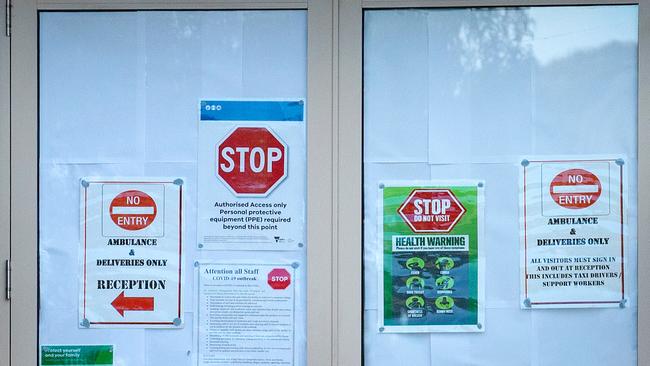
LOCAL COUNCIL ELECTIONS COULD BE DELAYED
The Andrews Government has given a strong hint that local council elections scheduled for October could be delayed due to coronavirus shutdowns.
Mr Andrews said talks were being held about the elections, but nothing had been settled.
“There’s obviously many different activities, and local government elections could be one of them,” he said.
“I’m not saying it is...where these restrictions, stage four, has a direct impact on those things,” he said.
“That’s not the preferred outcome, but I don’t think any of us can ignore the fact that these restrictions, this lockdown, is having knock-on effects in many different ways.”
News of talks on the issue came after Local Government Minister Shaun Leane recently insisted the elections would go ahead.
Speaking before stage four restrictions were introduced, Mr Leane said Victorians had the right to vote “at all levels of government”.
“If I put the elections back 12 months, no one can convince me, even the chief health officer, that our environment will be any better anyway,” he said.
Nillumbik deputy mayor Peter Clarke said the elections had to be postponed because of the extreme difficulty of campaigning in a hard lockdown.
Mr Clarke said no letterboxing would be allowed, and candidates would face tight deadlines nominating and then mailing out material.
“How you can argue it’s a fair and equitable democratic election is a nonsense,” he said.
“Post offices will struggle dealing with all the letters, and you’ll only be able to run an effective campaign unless you have a lot of money.”
- John Masanauskas
FOOD SUPPLY FEARS IN BORDER TOWNS
It comes as Aussie farmers plead for “agriculture permits” and exemptions to keep the country fed, as border shutdowns hit supply chains and spark fears of cost increases and food shortages.
Premier Daniel Andrews said he understood the the impacts of restrictions on movement and said “this is a really significant challenge”.
He said he would be in discussions with multiple state premiers in the coming days, but said a specialised agricultural permit was unlikely.
Farming groups, including the National Farmers Federation, AusVeg, Shearing Contractors Association, Australian Livestock & Property Agents Association and Melbourne Market Authority, held emergency talks on Wednesday to find a way through the looming crisis.
Industry groups have called for a single “farmer permit” for Victorian farmers who need to cross into NSW or Queensland, and floated the idea of dedicated bridges for contractors crossing regularly.
Victorian Farmers Federation president David Jochinke said: “We don’t farm for New South Wales, we don’t farm for Victoria or South Australia — we farm for the whole country.”
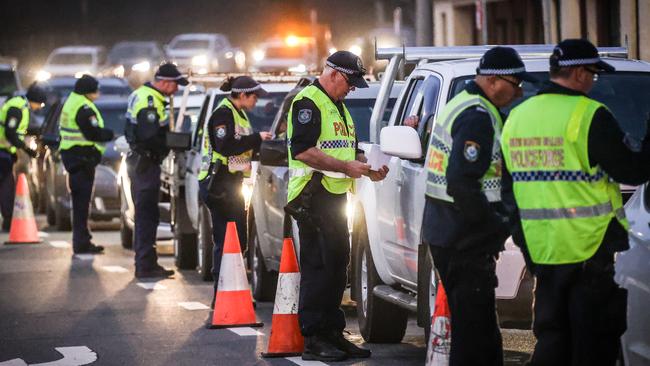
Among the industry’s concerns are:
• A lack of seasonal workers to pick fruit and vegetables;
• Livestock across borders that farmers can’t access or care for could die;
• Pregnant sheep and cows being left unattended;
• Specialist workers like shearers being forced to travel through major city hubs and quarantine for two weeks; and
• Crops could be destroyed as farmers cannot access them to irrigate and treat for insects and fungi.
Mr Jochinke said burecreats had not consulted industry when imposing the harsh restrictions have left farmers battling red tape.
“Farmers are absolutely frustrated along with the whole agricultural industry,” he said.
“I have had farmers on the phone crying because they are worried about their livestock.
“It’s putting pressure on production and the food supply chain.”
A litany of complaints from farmers reveal that they have battled to easily access properties across borders, with one even told he could be granted a permit if he pretended to work as a bus driver.
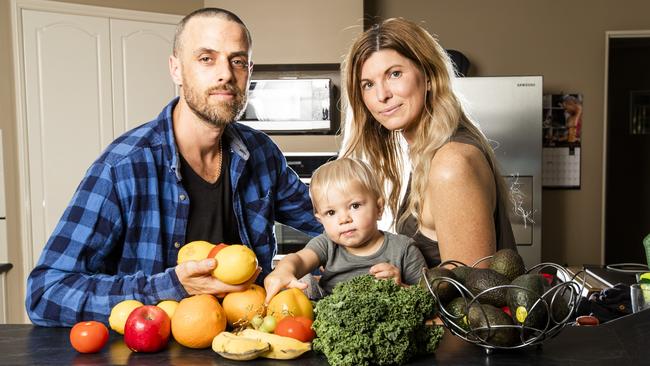
Mr Jochinke said shoppers could see cost increases or shortages on supermarket shelves if the supply chain issues weren’t addressed.
“You can’t re-ripen fruit and you can’t stop wool from growing,” he said.
“When we see an area running short of shearers or where fruit is not being picked, you can’t get that back and all this relates to cost, relates to choice in the supermarket.”
Permits exist for workers to cross the border but some farmers say they have not been included in the eligibility criteria, have to repeatedly fill out permit force and, in some cases, cannot cross the border near where they live and must instead drive to 100km to enter interstate.
Some specialist workers have also been forced to fly to major hubs like Sydney and fear they are putting themselves at risk by entering “hot spots” rather than simply driving through country council areas with few cases.
Mr Jochinke said he did not “want a free for all” but the current restrictions needed to be changed to prioritise health and the industry.
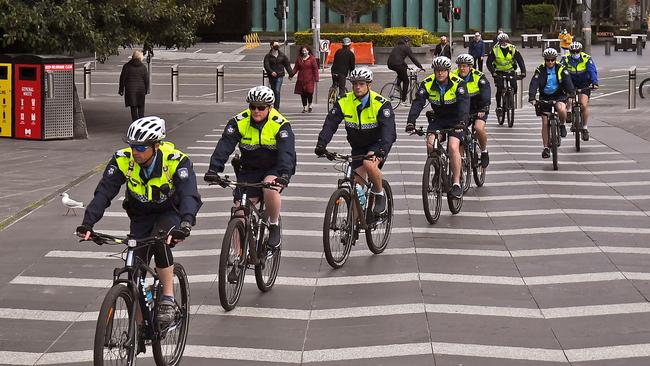
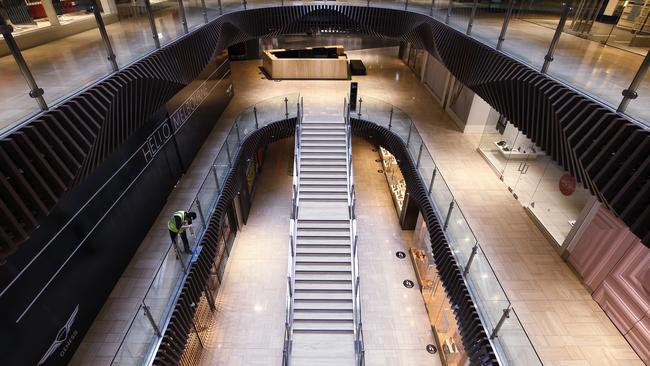
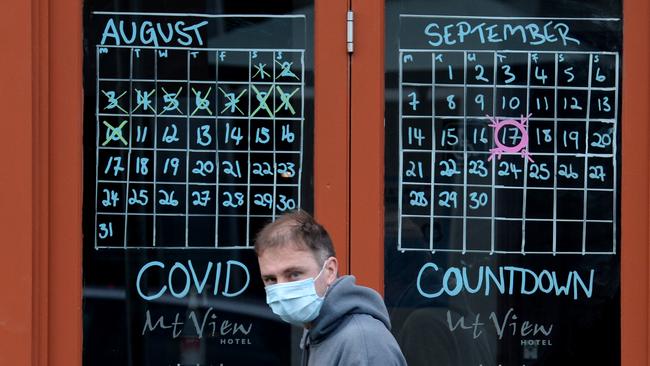
Labour shortages also pose a threat with predictions there will be a shortfall of 35,000 workers in Victoria and New South Wales.
AusVeg national public affairs manager Tyson Cattle said the lack of international workers would have a massive impact and could not be filled by the domestic market.
Currently seasonal workers have been given exemptions to move across borders but Mr Cattle said “ we expect it’s going to get really tight in November and toward the end of the year.”
“Pickers and packers are right at the start of the food chain, without that the rest of the supply chain falls over,” he said.
Shearing Contractors Association secretary Jason Letchford said workers were being forced to fly through major hubs and drive hundreds of kilometres to work.
In many cases, especially between Victoria and New South Wales, the permits were taking two weeks to process and being rejected.
“The problem is its a very transient workforce that follows the work and they can’t do that at the moment,” he said.
EXCUSES GALORE FOR FINED VICTORIANS
A skin conscious mask-dodger who told police he wasn’t covering his face because of a “bad pimple on his chin” is among the latest crop of Victorians to be fined for breaching health orders.
In the past 24 hours police issued 204 fines including 71 for curfew breaches, 29 for failing to wear a mask and 9 at vehicle checkpoints.
Among the other covidiots were:
A MAN found visiting a friend who told police he was awaiting the results of a coronavirus test;
SEVEN mates getting on the beers in Prahran Square and
FIVE men gathered at a Braybrook birthday party.
Operation Sentinel continues.
- Brianna Travers
HAPPY TO BE VIRUS FREE
There are only three local government areas in Victoria that have never had a case of coronavirus — and locals want it to stay that way.
Buloke, Hindmarsh and Towong have the enviable status of zero coronavirus infections.
In the Buloke Shire town of Sea Lake in Victoria’s northwest, it was a source of pride for the community that they had escaped any COVID-19 outbreak — but also one of relief, Royal Hotel manager Tarsh Hickey said.
“We are an ageing community, so we don’t want it here for obvious reasons. We’ve all tried to do the right thing by everyone in the community and guests we’ve had in town,” she said.
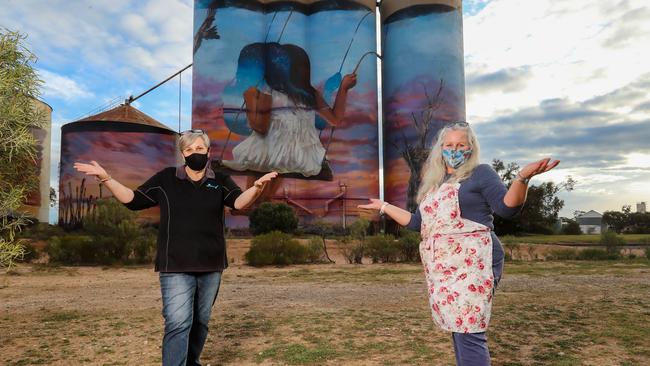
The scenes that have been repeated daily from Melbourne are never far from their minds — and on Wednesday Premier Dan Andrews warned regional cases were rising, and urged Victorians not to travel.
“Every time there is a news release or a restriction announced, people talk about it. I don’t think though it’s getting everyone doom and gloom. I think people are just finding a new way of normal to live and are getting on with the job.”
Sea Lake is under stage three restrictions, which keeps businesses operating, but with social distancing and other safety measures.
“Look, we could get frustrated, we could get angry about it, but at the end of the day it’s about keeping everyone safe and having a community again and get past this. We just have to accept it and move forward with it,” Ms Hickey said.
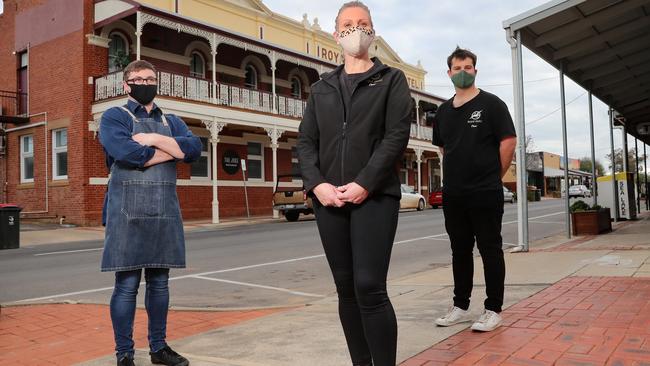
It was important to keep perspective, she said. “We’ve been through stage three before and now we’ve taken a step back. All we can look to is the positives — if everyone is safe and we haven’t lost a life, we really haven’t got much to complain about.”
Friends Tracey Wright and Jenny Simpson said locals had been vigilant for people who shouldn’t be there.
“We do all realise how lucky we are up here, we are protective of our town,” Ms Wright said. “Everyone knows everyone up here and no one wants anyone else to get sick. If it came up here — a small town like this, it would really knock it.”
Ms Simpson said locals were getting a bit “antsy with people we don’t know” and had heard of campers being asked about why they were there.
“They got quite defensive,” she said. “As much as we love having tourists and visitors to the town, it really is about keeping everyone safe.”
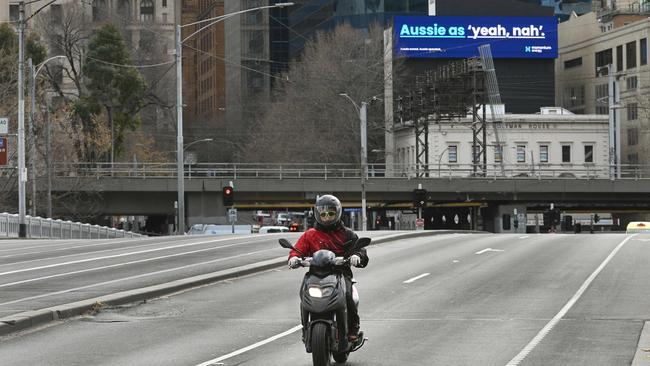
ANXIETY SHADES FUTURE
Aussies are feeling dissatisfied with their leaders and fear they’ve got another two years of COVID-19 challenges ahead, social researchers have found.
Victorians are bearing the brunt of the pandemic, with 76 per cent feeling drained by restrictions compared to only half in other states, McCrindle research shows.
Victorians are also more suspicious of the way governments are handling the pandemic, with 81 per cent in this state questioning the government compared to two-thirds in other states.
“Fatigue is impacting the sentiment and compliance of Australians,” demographer Mark McCrindle said. ”There is a sense that there will not be a snapback to how things were, and for now at least, personal anxiety is high and national resilience is low.”
MORE NEWS
ADF WERE ON STANDBY TO HELP HOTEL QUARANTINE
WORKPLACES WORST HIT BY CORONAVIRUS REVEALED
